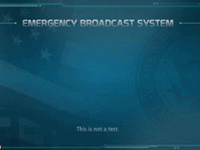15.06.2022, 05:21
Online classes are a wonderful thing. Online classes are great because you don't have to attend a class in person. You can sit at your computer and get instructions from your lecturer.
Online courses are convenient and less expensive, but it can sometimes be hard to concentrate on learning. You have many distractions, from emails and social media to the temptation to sleep especially when studying on your bed.
If you have to work while earning a masters online degree, it is a good idea to stick to a schedule. To receive instruction and lessons, you will need to determine your best time.
Online learning is quite different from what we've experienced in classrooms.
You're not the only one struggling to keep up with an online course. Many online learners experience similar difficulties. This infographic contains 11 helpful tips and strategies to help you succeed in eLearning.
1. Select a space that has reliable Internet access.
Online lectures and notes will be a necessity for you to study. You will therefore need to have a place where you can study without interruptions. Internet access is especially important for study sessions in your class.
2. Make a study schedule
A strict schedule is essential for online courses. Online courses may not require you to attend lectures or classes at specific times. However, it is important to follow the course material on your own. Self-discipline and self-discipline are important. Each week, set a time to log on to the class and access study materials.
3. Keep your online distractions at bay.
Online courses can be difficult to follow a set schedule. Be strict about sticking to your course schedule. Online courses require self-discipline to be successful.
If you have another tab open on your computer, it can make it difficult to concentrate on your online course. Avoid checking your email or surfing the Internet while you are doing classwork.
4. Get Active
When neurons in your brain are activated, learning happens. Engaging your mind is key to learning effectively. You can write notes, remember information, or simply say what you know about the topic.
5. To stay motivated
Motivational tricks can help you get results. Listen to your favorite music while you study or imagine yourself taking a break after completing the task in an hour.
6. Print any materials
Sometimes the internet and your computer can distract you. Sometimes it can be useful to switch off your computer to study. Print out important documents such as a syllabus and course schedule.
7. Notes on Online Lectures
Take notes online just like you would in a lecture. Take a piece of paper and a pen to take notes on the computer. Notes written by hand will retain the information better than those made from typed documents.
8. Take a test!
You can still practice your knowledge even if you don’t have access to practice exams. Write down every chapter you’ve read and ask yourself questions about the material.
9. Avoid multi-tasking
Multitasking is a sign that the brain has less capacity to store information. This means that if you are constantly switching between tasks, then all of that information will be moving in one ear.
10. Take breaks
You should take breaks while you study. Take a break from studying and do something you enjoy, such as watching TV or going for a walk. After a short break, you will feel refreshed and recharged.
11. Make friends online
Make connections with other online learners. You can meet up with other online learners to study together, share your struggles and learn from them.
Related article from CollegeBasics:
https://www.collegebasics.com/blog/how-t...exam-help/
Related Resources:
10 Unique Ways Students Cheat in Online Exams
Preparing for online exams
Preparing to Take Online Exams
Online Exams 5 Advantages
Online courses are convenient and less expensive, but it can sometimes be hard to concentrate on learning. You have many distractions, from emails and social media to the temptation to sleep especially when studying on your bed.
If you have to work while earning a masters online degree, it is a good idea to stick to a schedule. To receive instruction and lessons, you will need to determine your best time.
Online learning is quite different from what we've experienced in classrooms.
You're not the only one struggling to keep up with an online course. Many online learners experience similar difficulties. This infographic contains 11 helpful tips and strategies to help you succeed in eLearning.
1. Select a space that has reliable Internet access.
Online lectures and notes will be a necessity for you to study. You will therefore need to have a place where you can study without interruptions. Internet access is especially important for study sessions in your class.
2. Make a study schedule
A strict schedule is essential for online courses. Online courses may not require you to attend lectures or classes at specific times. However, it is important to follow the course material on your own. Self-discipline and self-discipline are important. Each week, set a time to log on to the class and access study materials.
3. Keep your online distractions at bay.
Online courses can be difficult to follow a set schedule. Be strict about sticking to your course schedule. Online courses require self-discipline to be successful.
If you have another tab open on your computer, it can make it difficult to concentrate on your online course. Avoid checking your email or surfing the Internet while you are doing classwork.
4. Get Active
When neurons in your brain are activated, learning happens. Engaging your mind is key to learning effectively. You can write notes, remember information, or simply say what you know about the topic.
5. To stay motivated
Motivational tricks can help you get results. Listen to your favorite music while you study or imagine yourself taking a break after completing the task in an hour.
6. Print any materials
Sometimes the internet and your computer can distract you. Sometimes it can be useful to switch off your computer to study. Print out important documents such as a syllabus and course schedule.
7. Notes on Online Lectures
Take notes online just like you would in a lecture. Take a piece of paper and a pen to take notes on the computer. Notes written by hand will retain the information better than those made from typed documents.
8. Take a test!
You can still practice your knowledge even if you don’t have access to practice exams. Write down every chapter you’ve read and ask yourself questions about the material.
9. Avoid multi-tasking
Multitasking is a sign that the brain has less capacity to store information. This means that if you are constantly switching between tasks, then all of that information will be moving in one ear.
10. Take breaks
You should take breaks while you study. Take a break from studying and do something you enjoy, such as watching TV or going for a walk. After a short break, you will feel refreshed and recharged.
11. Make friends online
Make connections with other online learners. You can meet up with other online learners to study together, share your struggles and learn from them.
Related article from CollegeBasics:
https://www.collegebasics.com/blog/how-t...exam-help/
Related Resources:
10 Unique Ways Students Cheat in Online Exams
Preparing for online exams
Preparing to Take Online Exams
Online Exams 5 Advantages



 Wir spielen im Jahr 2025 in Michigan, Detroit. Zur Zeit spielen wir im Monat Juni. Wir stehen ein paar Tage kurz vor der Purge - Die Säuberung. Hier kommt der Wetterbericht für den Monat Juni und speziell für die bevorstehende Nacht aller Nächte.
Wir spielen im Jahr 2025 in Michigan, Detroit. Zur Zeit spielen wir im Monat Juni. Wir stehen ein paar Tage kurz vor der Purge - Die Säuberung. Hier kommt der Wetterbericht für den Monat Juni und speziell für die bevorstehende Nacht aller Nächte.



